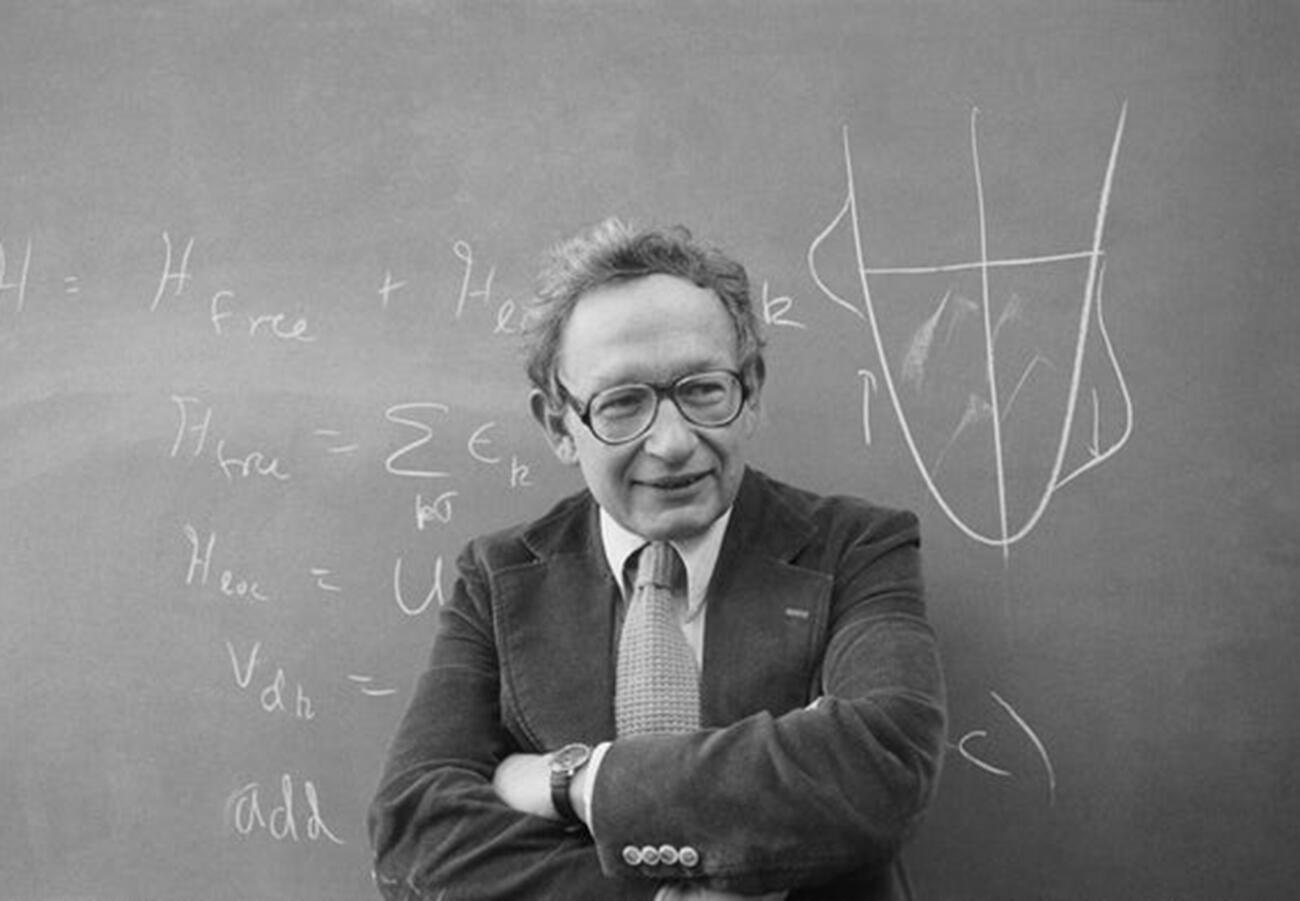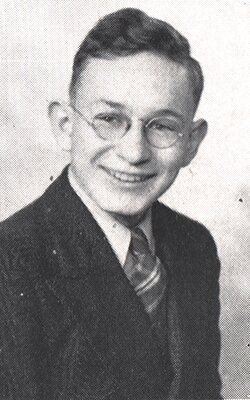
Phillip Warren Anderson was born in Indianapolis, Indiana but grew up in Urbana, Illinois, graduating from Uni High in 1940 at the age of 16. He graduated from Harvard University with a Bachelor’s of Science in 1943. While at Harvard, he studied Electronic Physics and attended on a full-ride scholarship. Shortly upon graduation, he was drafted into the military and worked on radar at the Naval Research Laboratory until World War II’s conclusion in 1945. After the war, Anderson continued his studies at Harvard, receiving a Ph.D. in Physics in 1949; his doctoral dissertation was titled “The theory of pressure broadening of spectral lines in the microwave and infrared regions.”
Anderson was employed by the famous Bell Laboratories in New Jersey from 1949 to 1984. There, he researched a wide variety of problems in condensed matter physics. He developed what is now called Anderson localization, as well as Anderson's theorem. He also invented the Anderson Hamiltonian, which describes interactions of electrons in transition metals, and also proposed the idea of symmetry breaking, which was integral to the development of the Standard Model of particle physics as well as the Anderson-Higgs mechanism. For this research as well as much more, in 1963, Anderson was elected a Fellow of the American Academy of Arts and Sciences.
Beyond research, Anderson lectured at Cambridge University from 1961 to 1962, and from 1967 to 1975, he served as visiting professor of theoretical physics. In 1977, Anderson was awarded the Nobel Prize in Physics (along with co-researchers John van Vleck and Sir Nevill Francis Mott) for his discovery of electron localization, in which disordered metals (conductors) become insulators. In 1982, he was granted the National Medal of Science, and in 1984, he retired from Bell Laboratories, becoming the Joseph Henry Professor Emeritus of Physics at Princeton University.
Anderson was a prominent atheist and signatory of the Humanist Manifesto, as well as an avid enthusiast of Japanese culture. He was a 1st-dan (first level) master of the board game Go and was awarded by the Nihon Ki-in (Japanese Go Association). He passed away in Princeton, New Jersey on March 29, 2020, at the age of ninety-six years.
Sources: https://en.wikipedia.org/wiki/Philip_W._Anderson
https://www.nature.com/articles/d41586-020-01318-4
